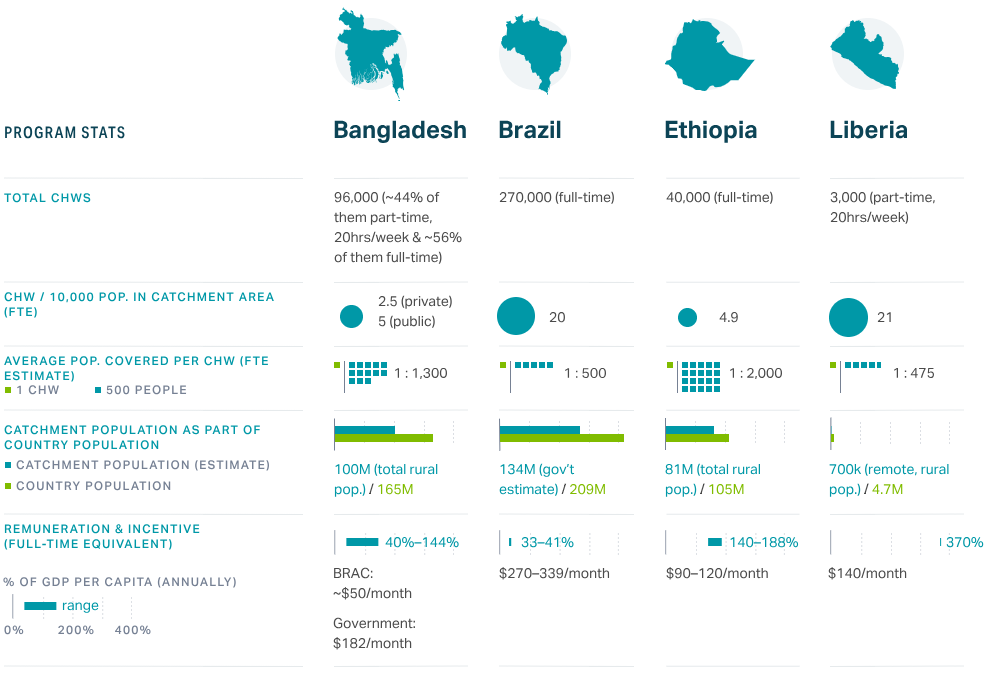| - Prevent neonatal sepsis, administer immunizations, identify and manage malnutrition, identify pregnant mothers, provide antenatal and postnatal care (ANC/PNC) - only CHCP/SK, preventive education on neglected tropical diseases (NTDS), non-communicable diseases (NCDs), HIV, tuberculosis (TB), and provide family planning (FP) distribution
| - Identify risk factors in the home, measure blood pressure/glycemia, provide 1:1 counseling on cancer and other NCDs, HIV, TB healthy behaviors and FP, schedule ANC/PNC and general PHC appointments, follow up to ensure attendance and support and adherence to medication (e.g. for diabetes)
| - Prevention of neonatal sepsis, administer immunizations, identify and manage malnutrition, identify pregnant mothers, provide ANC/PNC (only HEW), deliver preventive education on NTDS, NCDs, HIV, TB, and provide FP distribution
| - Identify danger signs and provide referrals for pregnant women and children, identify pregnant mothers and provide them with referrals for ANC/PNC and facility-based deliveries, identify and manage malnutrition, vaccination dropout tracing, preventive education on NTDS, NCDs, HIV, TB, provide FP distribution, and basic first aid response
|

